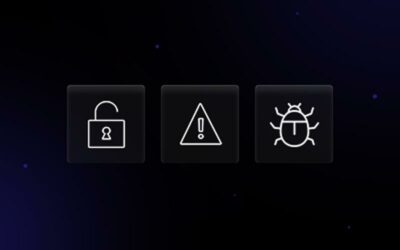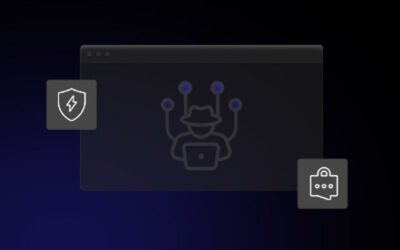Your life creates a digital footprint that must be protected. Personal and professional data left unsecured can render you vulnerable to cyberattacks. Take stock of your current security measures and create a plan to fortify your future.
Smart steps to secure your computer now can save you headaches and heartaches later. Consider the following ways to keep your computer secure.
1) INSTALL ANTIVIRUS & ANTI-SPYWARE PROGRAMS
There are countless ways to stumble across viruses online, so your computer should be prepared to detect and fend off attacks. Think about boosting your antivirus protection with Microsoft managed detection and response (MDR) and keeping up with the latest innovative software. Anti-spyware can help to neutralize malicious threats that seek to track, store, and use your personal data for nefarious purposes.
2) UPDATE YOUR SOFTWARE
Check for software updates regularly and try to implement them as soon as possible. Many software updates on applications function to strengthen areas of vulnerabilities. Identified glitches can be a backdoor for hackers and running verified developer software updates shuts that door more securely.
3) CHANGE PASSWORDS
Complex passwords are more effective than streets, pet names, schools, teams, or birthdays. Your password combination of numbers, letters, and symbols should be impersonal. Use a different password for each account and change it regularly, especially if you log in across multiple devices. Change your passwords and choose to log out from all other browsers if you lose a computer or smartphone.
4) USE A FIREWALL
A firewall is the frontline that protects your computer from threats on the internet. It acts as a defensive barrier that stops threats before they spread throughout your devices or network. You can purchase software firewalls or use free options in addition to those that are typically built into routers. Verify that your hardware firewall is turned on.
5) SET UP A PRIVATE NETWORK
Coffee shops, airports, libraries, apartment building common areas, and hospitals commonly offer public WiFi access. Although connecting in these places can be convenient, they do not offer the security of a private network. Set up your home network with a password that only you know and share. Using a private network is important so that you can be confident that another device connected to the same WiFi is not intercepting your data.
6) DON’T CONNECT TO UNKNOWN DEVICES
If you don’t trust the source of a device or know what data it contains, do not connect it to your device. This could result in a virus or exposure to other threats. It is best to share files in the cloud whenever possible and use your personal devices. Do not connect work computers provided by a company to any other devices without permission.
7) USE THE WEB DISCERNINGLY
Viruses and spyware can lurk in seemingly innocuous corners of the web. Clicking on an intriguing advertisement banner can introduce tracking cookies and malware. Avoid any websites that host pirated entertainment materials because they are a common source of security problems.
8) CHOOSE A GOOD BROWSER
Use a browser that is equipped to filter safe search results and suggest relevant sites first. The right browser can be a helpful tool in your security kit.
9) BE WARY OF MESSAGE LINKS & ATTACHMENTS
Spam messages and unknown contacts can be frustrating and troublesome. Resist any urge to click them and avoid suspicious links and attachments. Delete spam emails and texts immediately. Verify the sender of a message before you open an attachment.
10) BACK UP IMPORTANT DATA
Create backups of all your important data, like documents and valued family photos. Use a secure cloud or external storage device to back up your data in case of any device loss or cyber attack.
You have the knowledge and power to fortify your computer against any threat.



